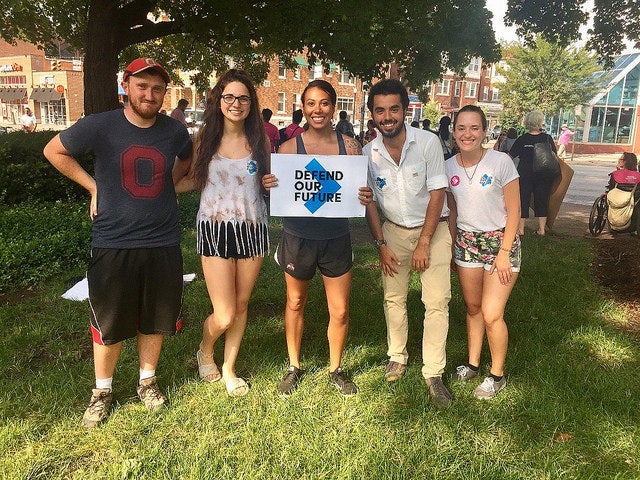
For all the young people who are entering their very first election season, we assure you – this is not a normal year.
With the persistent COVID-19 pandemic and questions about mail delivery and protocol, the 2020 elections are going to be substantially different from elections past. Here are tips for effectively navigating these wild cycle:
1. Make a Plan to Vote (And Help Your Friends and Family Do the Same)
- Make sure you’re registered! We’ve partnered with TurboVote to easily register or check your registration and to request an absentee or mail-in ballot.
- If you plan on voting early in-person or on Election Day, visit your state’s board of elections website to find early voting dates, last days to register to vote and request mail-in ballot and check with your local boards of elections for the deadlines to drop-off your ballot in-person.
- Once you’ve made your plans, share the knowledge! Ask your friends and family about their plans to vote and help them either get registered, check their registration or request an absentee ballot.
2. Ensure You Can Exercise Your Right to Vote
- With increased volume of mail for the Postal Service this year because of the pandemic, coupled with widely reported USPS operational changes that have slowed down postal service in many locations, it’s more important than ever to do due diligence if you plan to vote by mail. Check with your local board of elections mail-in ballots make sure you meet the postmarked deadline, or give at least a 14 day turnaround when mailing your ballot.
- Protect your right to vote. Contact the non-partisan Election Protection hotline if you have trouble at the polls, or in obtaining your ballot. Election Protection also has easy to find state-by-state information on important voting-related deadlines, so you don’t miss out.
3. Consider Being a Poll Worker
- According to the U.S. Election Assistance Commission, 58% of poll workers are over the age of 60, an age group that’s linked to a higher risk of complications from COVID-19. That means there could be poll-worker scarcity on Election Day.
- If you feel safe & comfortable doing so, consider serving as an election worker. Visit powerthepolls.org or your local board of elections website to find more information on how to apply to be an election worker.
4. Don’t Forget The Down-Ballot Races, Too
- The race for the Presidency is not the only one! It’s election season for state and local offices across the country, too. It’s important to make sure that you ensure your voice is heard not only on a national level, but also so that you have a say in how important issues are handled in your local community. Look into local races happening where you live if you haven’t already.
5. Remind Other Young People That They Have the Power to Shape Elections (If they Turn Out)
- Young people, the outcome of this election is in our hands if we want it to be. Generation Z and Millennials will make up nearly 40 percent of the voting-eligible population this year. And nearly 30 percent of the total electorate is expected to be non-white.
- Here’s something that will make the old people in your life feel old: This year’s election will be the first that Americans born after the 9/11 attacks will be voting for President, and also the first time Gen Z (18-24) will surpass the Silent Generation’s (74 and older) share of the voting population.




